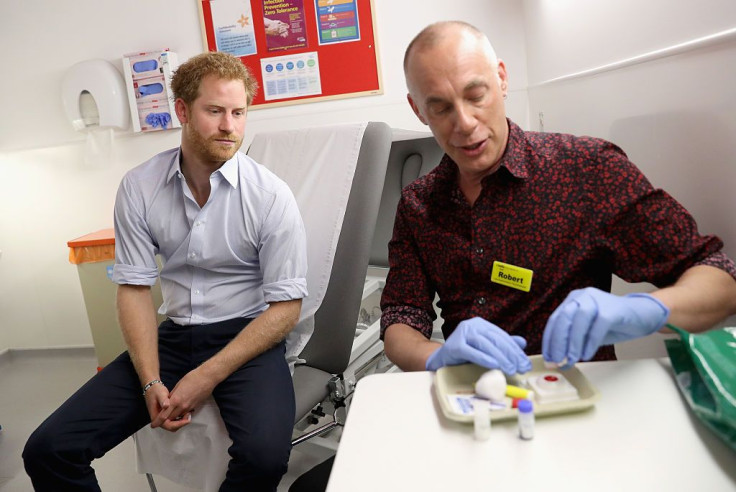Prince Harry Gets HIV Test On Facebook Live To Show People Around The World How Easy It Really Is

When Facebook launched its live-streaming app, Facebook Live, the social media giant hoped it would bring users closer to their followers, from answering any burning questions to hearing what’s on their mind in real time. Live streams are also an easy way to connect with people outside your network, and for Prince Harry, that presents an especially unique opportunity.
Like his late mother Diana, Harry is dedicated to raising awareness for HIV/AIDS. His charity, Sentebale, supports orphans and vulnerable children who have been affected by the epidemic through education, psychosocial support, and otherwise care that ensures they go on to live healthy and productive lives, according to its website. And since the only way to know for sure if you have HIV is to get tested, Harry thought it would be a good idea to show people around the world how easy it is to do exactly that, ABC News reported.
Harry scheduled a minute-long finger prick test at the St. Thomas Hospital in London to live stream on The Royal Family Facebook page on Thursday. This is one of three broad types of HIV tests currently available, per the Centers for Disease Control and Prevention — the antibodies produced by the immune system when exposed to HIV appear in the blood. And despite some nerves ahead of the test, the Prince’s results came back negative.
"Gay, straight, black, white, ginger, whatever — why wouldn’t you just have a test?" he said during the broadcast. “...We all shouldn’t be on the other side of the river saying, 'You should get the test. It should be normalized. Everybody should get (it).”
While the CDC has found the number of people getting tested for HIV has improved since 2009, at least in the United States, uptake is still below what experts hope — at least 1 in 3 Americans who test positive for HIV is tested too late to get the full advantage of treatment. In the UK, approximately 17 percent (18,000 people) are HIV-positive and don’t even know it yet, a partial reason why HIV rates continue to climb. Testing doesn’t only save your own life, it saves the lives of others you may be involved with.
Social media is in a very interesting position to elevate both Harry’s and the CDC’s mission. An article published in Trends in Microbiology found that candid tweets about HIV transmission help users learn about HIV precautions and treatments, which makes them more than twice as likely to request a test. And in a similar study, researchers found that Twitter can help track areas around the U.S. where HIV infections are more concentrated.
It’s not just HIV/AIDS, either. Research out of Johns Hopkins found that Facebook and other social media campaigns, which some science has proven actually makes a difference, boosts organ donation. At the end of two weeks, the researchers found the number of new organ donors was still climbing at twice the normal rate.
Beyond drawing more attention to public health issues, it’s just something people seem to appreciate. Most of the comments on Harry’s Live event are positive, many recalling Diana’s own work with the cause and speculating how proud she would be if she were alive today. One user praised Harry for “reaching out to the younger generation,” while another simply expressed hope “more people go to a clinic and get tested now.”



























